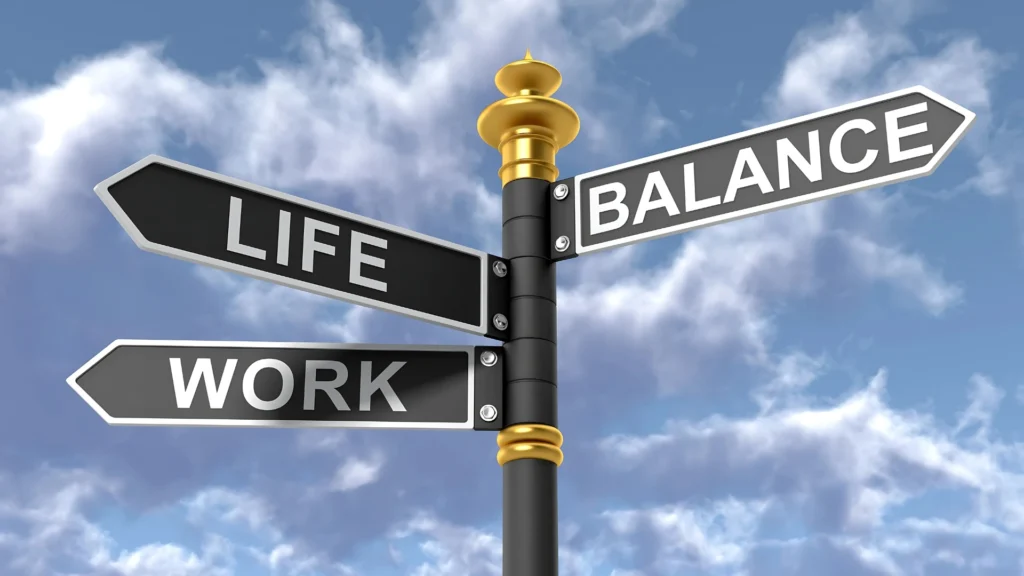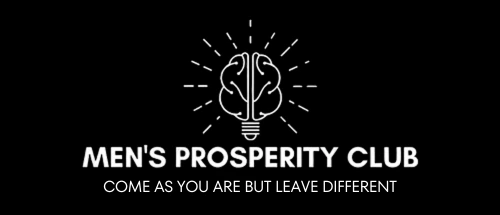The numbers are alarming. About 77% of men have dealt with common mental health issues such as anxiety, stress, or depression. Yet 40% have never spoken to anyone about their mental health struggles. These statistics reveal a troubling reality about men’s issues in today’s society, especially when you have men making up roughly 75% of all suicides in the UK.
Men’s mental health landscape shows we need urgent changes. Men today are three times more likely to visit a therapist compared to previous years. However, the biggest problems still exist. Men make up only 36% of psychological therapy referrals. This is concerning since one in eight men faces depression at some point in their lives.
This piece discusses the most important men’s issues society overlooks, from mental health stigma to social bonds. Male friendship networks have seen a sharp decline over the last several years. Back in 1990, 55% of men had at least six close friends. That number dropped to just 27% by 2021. The time has come to tackle these challenges directly and find practical solutions for today’s men.
Breaking the Silence: Men’s Issues That Are Overlooked
Society’s pressure on men to keep a stoic facade has created a deep crisis in masculine identity. Research reveals that nearly 9% of men deal with daily anxiety or depression, yet fewer than half seek professional help or talk about these feelings.
Hidden struggles in modern society
Men today face an unprecedented mental health crisis. Male suicide rates are 3.6 times higher than women’s. Men show higher rates of anger, aggression, and substance abuse – male-specific symptoms of depression that often go unnoticed. Their outward signs of distress mask deeper emotional pain while society reinforces traditional expectations of male strength and resilience.
Impact of Traditional Expectations
Traditional masculine norms shape men’s mental health and their behaviour when seeking help. Men learn to be strong, resilient, and emotionally closed off, which leads them to hide depressive symptoms. The strain to meet unrealistic gender expectations creates a ‘masculine strain’ and results in poor psychological outcomes.
Research shows that following traditional masculine norms relates to:
- Higher rates of depression and anxiety
- Increased hostile behaviours
- Reluctance to seek mental health support
- Greater risk of substance abuse

Challenging societal norms
Our understanding of masculinity has transformed into something multidimensional that adapts to different social contexts. Recent studies reveal that men will seek help if resources are available and tailored to their priorities. Successful approaches honour male archetypes instead of undermining them.
New forms of masculinity challenge these limiting traditional stereotypes. Modern changes show men who increasingly reject homophobia and connect both emotionally and physically with peers. This rise needs continued support and understanding from society as men find their way between traditional expectations and modern realities.
Professional Identity and Career Pressures
Financial pressures and workplace expectations create significant challenges for men in modern UK society. A survey by Finder found that 70% of UK adults experienced financial stress or money worries in the past year. Men often feel additional pressure due to societal expectations to be the primary breadwinners. A survey revealed that 71% of men aged 18 to 24 believe they should be the main earners in a relationship. This role can lead to negative health effects, including increased stress and anxiety.
Modern workplace challenges
Today’s work environment puts complex demands on men. Half of all fathers find it hard to balance work and family life. The workplace culture expects them to be available all the time and show total dedication. Men worry about asking for flexible work options because it might make them look less committed to their jobs.
Financial stress and expectations
Money stress shows up in both physical and mental ways for many men. Research shows that when financial stress goes unchecked, it raises the risk of heart attacks, strokes, and mental health problems like anxiety and depression. Money troubles rank among the top reasons relationships fall apart.
Money pressure affects men’s wellbeing in several ways:
- They get more anxious and depressed
- Their physical health suffers
- Personal relationships become strained
- Their workplace stress goes up
Career development and fulfilment
Men’s career satisfaction varies a lot, and recent studies show some worrying trends. A detailed survey found that 45% of men don’t feel happy in their careers. The numbers look better for self-employed men, with about 80% saying they’re satisfied.
Men tend to struggle more than women with career identity and stability. They feel pressure to succeed at work while trying to maintain a good work-life balance. Society still expects them to be the main providers. The workplace may be changing, but many men still find it hard to discover meaning in their careers, especially as technology changes faster.
A man’s career success is still closely tied to his personal identity, and financial stability often determines his self-worth and social status. This makes career setbacks feel very personal and leads to more anxiety and stress. Fixing these work-related pressures requires both personal strategies and bigger changes in workplace culture that support mental health and better work-life balance.

Mental Health in the Digital Age
Digital technology has changed how men deal with and experience mental health. Research shows that digital mental health tools are great solutions for men who might hesitate to seek traditional help. These tools provide private and available options for support.
Social media impact on self-image
Social media platforms now put extreme pressure on male body image. Studies show men face growing pressure to match muscular and lean body ideals. Instagram shows a skewed picture where 37% of men globally have a body mass index >25 kg/m2. Posts that show very lean and muscular white men exercising get more attention, which might reinforce unrealistic standards.
Online harassment and cyberbullying
People experience online harassment differently, with 43% of men reporting some form of online abuse. Men are more likely to face name-calling and physical threats online. The numbers show that 35% report offensive name-calling and 16% experience physical threats. Women, on the other hand, report higher rates of sexual harassment and stalking in digital spaces.
Digital wellness strategies
Establishing healthy boundaries is a vital part of maintaining mental wellbeing in the digital age. Studies show that cutting back on social media use can reduce depression and loneliness. Experts recommend these key strategies for digital wellness:
- Set times to check your emails and social media.
- Create tech-free zones in living spaces
- Practise mindful consumption of online content
- Get involved in regular offline activities
The digital mental health care world is changing faster, and digital platforms now play a vital role in treatment options. Virtual therapy and online support groups give men unique advantages by providing anonymity and flexibility that traditional services can’t match. These digital tools help busy professionals who need more privacy than traditional sessions offer.
Digital platforms challenge mental health but also provide innovative solutions. Success depends on managing digital consumption while using technology’s benefits to support mental wellness.

Relationships and Modern Dating Challenges
Modern dating brings new challenges for men, and dating apps have changed traditional relationship patterns. Research shows men make the first move three times more than women, but 50% of women’s likes go to just 15% of men on dating platforms.
Dating app culture and expectations
Online dating shows clear gender differences, with men making up more than 60% of dating app users. Many men get very few matches and messages that go unanswered. The situation gets tougher as 42% of Gen Z women and 35% of millennial women say they won’t date shorter men.
Dating apps have created a casino-like atmosphere where people make snap judgments based on a few photos and short descriptions. About a third of male users (31%) worry about meeting their potential partner’s expectations.
Building authentic connections
Real relationships grow from genuine interactions. People create deeper bonds when they drop their masks and show true vulnerability. Men can build better relationships by:
- Listening without hidden agendas
- Showing real interest in conversations
- Being empathetic
- Making room for emotional expression
Navigating modern relationship dynamics
The dating culture’s rise has created unique pressures for men. Young people have smaller social circles than before, and social connections have dropped. This change forces many to date outside their friend groups, making looks more important in first meetings.
Modern dating still expects men to plan all social activities, even after several dates. The trend of ‘ghosting’ has brought new emotional challenges when conversations and potential dates disappear without warning.
Dating has become more complex for everyone. However, research shows that building emotional connections within the first 24-48 hours after matching can lead to better relationships. Being genuine and communicating openly helps create stronger relationship foundations.
Men feel pressure beyond the first few dates. They struggle to balance showing vulnerability while keeping traditional masculine traits. This creates unique challenges in today’s dating world, where expectations keep changing but traditional gender roles stay the same.
Physical Wellbeing and Lifestyle
Men face bigger health challenges than women. Research shows they have higher death rates from diseases and injuries. Both biological factors and social influences shape how men deal with their health.
Holistic health approaches
Men’s health needs more than just medical treatment. They experience higher rates of heart disease, high blood pressure, diabetes, and cancer. Most of these conditions share risk factors we can prevent, like smoking, drinking alcohol, and not being active enough.
Men can dramatically improve their health through prevention and lifestyle changes. A healthy diet with fruits, vegetables, lean proteins and whole grains helps prevent many health issues. Regular exercise also makes a big difference. The NHS suggests 150 minutes of moderate exercise or 75 minutes of intense activity each week.

Work-life-fitness balance
Physical and mental health work together like partners. About 63% of men say their physical health affects their mental wellbeing. Younger men understand this connection better—76% of those aged 25-34 and 71% aged 16-24 see the link, compared to 53% of men over 55.
A good work-life balance helps maintain physical health. Too much work stress can lead to high blood pressure, heart disease, and other serious heart conditions. Setting clear boundaries and making time outside work helps men manage stress and stay active.
Stress management techniques
Stress management matters more than ever, as 74% of UK adults feel overwhelmed during the year. Experts suggest these ways to reduce stress:
- Regular physical activity and exercise
- Mindfulness and meditation practises
- Adequate sleep and rest
- Healthy eating habits
- Social connection and support
Unmanaged stress does more than hurt mental health. Studies show that long-term stress forces the body to take resources from normal functions, straining both physical and mental health. People should watch for stress signs like poor sleep, aches, pains, headaches, and digestive problems.
Better physical health requires a balanced approach. About 74% of men believe they live healthily, whatever their age. Men between 35 and 44 lead this trend—79% actively try to stay healthy. This shows that modern men care more about their health than ever before.
Creating Positive Change Through Community
Building strong communities through male engagement leads to lasting positive change. Men who have mentors show a 40% increase in mental resilience and a 35% reduction in feelings of loneliness.
Mentorship and role models
Positive role models significantly affect men’s career satisfaction and personal growth. People with role models are 68% more likely to find their careers rewarding. Mentorship goes beyond career guidance and provides emotional and psychological support that deepens mental wellbeing and resilience.
Male mentors help other men connect with support services. They show that vulnerability is a form of strength that reshapes traditional masculine narratives. Many men used to hesitate to ask for guidance, but male mentors have made this process more approachable.
Community engagement opportunities
Men find various paths to personal development and social connection through community involvement. Local organisations in England actively get young people involved in learning about gender justice and creating positive social change. These initiatives focus on:
- Creating safe spaces for open conversations
- Developing youth-led programme activities
- Strengthening advocacy networks
- Building cross-community partnerships
Organisations note that communities thrive when men take part in community activities. Religious, traditional, and civil society leaders are great at promoting positive change, especially when they use their influence.

Building support networks
Support networks help curb loneliness and isolation among men. Close friendships give men a safe space to share their struggles without judgment. Many organisations now offer peer support groups where men connect and help each other.
Online platforms have become valuable tools to build support networks. These digital spaces offer anonymity and flexibility that appeal to men who might not feel comfortable with traditional support methods. Men end up creating connections and learning important coping strategies from others who share similar experiences.
Strong support networks benefit more than individual wellbeing. Communities where men actively participate in support activities show higher rates of class attendance. These men also become valued decision-makers within their families. This shows how support networks help both individual men and their communities.
Workplaces now recognise the importance of male support networks. Team member check-ins, shared interest groups, and anonymous discussion platforms create supportive environments where men feel comfortable asking for help. These well-laid-out support systems encourage genuine connections beyond work tasks.
Building emotional support networks among men needs sustained effort and cultural change. Traditional masculine norms can block these connections, but research shows men value and seek supportive relationships more than ever. Community engagement and mentorship programmes give men chances to build meaningful connections while contributing to positive social change.
Overcoming Modern Challenges for a Better Life
Today’s men deal with their most important challenges in many aspects of life. The stigma around mental health continues despite some good changes. Career pressure and complications from the digital world add more stress. These problems affect everything from dating and relationships to physical health, impacting men’s lives.
Things are getting better as men challenge old expectations. Their support systems keep growing stronger. Digital platforms now provide new ways to connect and ask for help. Studies show that men who work with mentors and join support groups feel less lonely and handle stress better.
Moving forward requires personal effort and community backing. Men who prioritise their physical and mental health while building real connections are happier with life. The Men’s Prosperity Club provides great resources and community support. Young men can find tools and guidance through articles, videos, and podcasts to handle modern challenges.
Real progress comes from breaking old habits and finding new ways to express masculinity. Every small step toward being more open strengthens individuals and communities. Men can build better, more rewarding lives by working together to solve these problems while helping others on similar paths.




